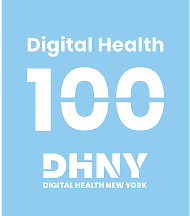
As health plans face increasing financial pressures, finding ways to cut costs while maintaining quality care is a top priority for administrators and decision-makers. One often-overlooked area that significantly impacts overall expenditures is digestive health.
Digestive diseases are among the most common health conditions, affecting 60 to 70 million people. These conditions lead to significant medical claims and costs—accounting for $136 billion in annual expenditures. This financial burden surpasses that of heart disease, trauma, and mental health conditions. By prioritizing digestive health, health plans can not only reduce the high costs associated with GI claims but also enhance member outcomes. Here are five strategies for cutting costs related to digestive health.
Implement comprehensive preventive care programs
Preventive care is a critical strategy for maintaining long-term health and preventing disease. In digestive health, this means promoting regular screenings, early intervention, and member education. Conditions, such as colorectal cancer (CRC), can be managed more effectively when identified early, improving outcomes, and reducing costs.
Implementation strategies:
- Develop screening campaigns: Promote awareness of recommended screenings such as colorectal cancer screenings.
- Educational resources: Provide educational materials about symptoms and risk factors of digestive diseases, empowering members to seek care early.
- Incentivize preventive visits: Consider offering lower copays for preventive visits related to digestive health to encourage member participation.
Investing in preventive care can significantly decrease the incidence of advanced diseases, ultimately lowering the costs associated with treatment and hospitalizations.
Leverage telehealth services
Telehealth has become an invaluable tool in managing health care costs, particularly for routine gastrointestinal concerns. By facilitating virtual consultations, health plans can reduce the need for in-person visits, leading to savings by lowering emergency room utilization and enhancing support for chronic disease management.
Implementation strategies:
- Promote virtual visits: Encourage members to utilize telehealth for initial assessments of digestive issues, helping to reduce unnecessary emergency room visits. Gastrointestinal diseases cost the U.S. health care system approximately $136 billion annually, with over 8.4 million ED visits related to digestive conditions.
- Chronic disease management: Use telehealth for ongoing care for chronic GI conditions to prevent complications that could lead to costly hospitalizations, ultimately reducing long-term health care expenses.
Telehealth can not only lower costs but also improve member satisfaction and engagement, making it a win-win for health plans.
Enhance care coordination
Digestive diseases often require multidisciplinary care, involving specialists such as gastroenterologists, dietitians, and mental health professionals. Enhancing care coordination among these providers can lead to more efficient treatment plans, ultimately reducing costs by up to 20-30%.
Implementation strategies:
- Integrated care teams: Establish care teams that include primary care physicians and specialists to collaboratively manage members with digestive diseases.
- Shared health records: Implement shared electronic health records (EHRs) that allow providers to access and update patient information easily, ensuring seamless communication.
- Patient navigation services: Offer patient navigators to help members coordinate their care, ensuring easier access to necessary services and reducing fragmented treatment. At Cylinder, we integrate within the existing care ecosystem to improve continuity, close gaps in care, and deliver better outcomes—resulting in improved population health, a better member experience, and less frustration for everyone.
Effective care coordination can minimize unnecessary tests and procedures, reducing overall health care spending.
Focus on nutrition and lifestyle interventions
Nutrition plays a critical role in managing digestive health, particularly since 40% of Americans experience daily disruptions from gut issues like IBS and colorectal cancer. Health plans can reduce costs by promoting healthier lifestyles and dietary choices among members, as many digestive problems can be managed through proper nutrition, decreasing reliance on medications and expensive treatments.
Implementation strategies:
- Nutrition counseling: Provide access to registered dietitians who can work with members to develop tailored dietary plans that address their specific digestive issues.
- Wellness programs: Create wellness programs that focus on healthy eating, weight management, and physical activity to help members maintain a healthy digestive system.
- Educational workshops: Host workshops and webinars on digestive health topics, such as managing lactose intolerance or understanding the low FODMAP diet.
By investing in nutritional interventions, health plans can reduce the long-term costs associated with chronic digestive diseases.
Utilize data analytics for predictive modeling
Data analytics can play a pivotal role in identifying cost drivers within digestive health. By analyzing claims data, health plans can pinpoint trends and high-cost areas related to digestive diseases, allowing for targeted interventions.
Implementation strategies:
- Claim analysis: Regularly analyze GI claims data to identify patterns in diagnoses, treatments, and costs.
- Risk stratification: Use predictive modeling to stratify members based on risk factors for digestive diseases, allowing for proactive management of high-risk populations.
- Outcomes tracking: Monitor the outcomes of implemented programs to evaluate effectiveness and adjust strategies accordingly.
Utilizing data analytics helps health plans make informed decisions that can lead to significant cost reductions over time.
Addressing the high cost of digestive diseases
Digestive diseases impose a significant financial burden on health plans, leading to soaring costs through medical claims and treatments. By adopting comprehensive preventive care programs, harnessing the power of telehealth, enhancing care coordination, prioritizing nutrition and lifestyle interventions, and employing data analytics, health plans can dramatically reduce expenses while simultaneously improving health outcomes for their members.
For deeper insights into how digestive health influences overall health care costs, read Digestive health: The silent cost burden for health plans. These strategies not only strengthen your bottom line but also elevate the quality of care provided to your members, fostering healthier communities and more sustainable health care practices.







